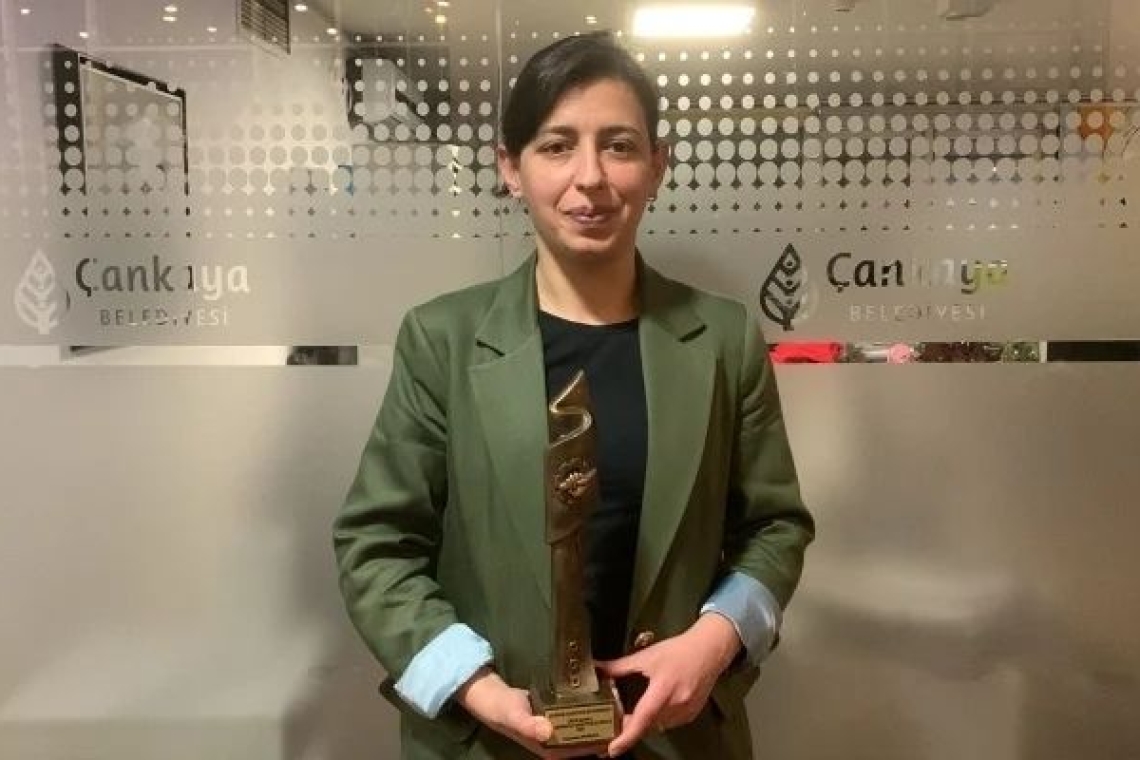Rabia Çetin
A Turkish court has sentenced journalist Asuman Aranca to 10 months in prison for publishing details from an expert report related to the high-profile murder of former Grey Wolves leader Sinan Ateş, ruling that she violated a confidentiality order. The court initially handed down a one-year prison sentence, then reduced it to 10 months for good conduct and postponed the announcement of the verdict.
The final hearing in Aranca’s trial took place at the Istanbul 2nd Criminal Court of First Instance. Aranca, a reporter for the independent news outlet T24, was charged with “violating confidentiality” over her story titled, “T24 obtains expert report in Sinan Ateş murder case: Grey Wolves president requested Ateş’s address!”
Aranca and her lawyer, Mustafa Gökhan Tekşen, attended the hearing remotely via Turkey’s Audio and Visual Information System (SEGBİS) from the capital Ankara. The prosecutor repeated his earlier opinion, arguing that the way the news report was written did not serve the public interest and that publishing the contents of the expert report exceeded the boundaries of press freedom. The prosecutor requested a conviction for violating the confidentiality order.
In her defense statement, Aranca rejected the claim that she had published the entire expert report, which spans 900 pages, saying only the 400-page section relevant to the individual in question was reported. “It’s impossible to publish the full report. The prosecutor also claims there was no public interest. This case inspired an episode of the TV series Behzat Ç, and one of the suspects was recently shot dead in public. It continues to have major political ramifications. What more public interest could there be?” she said, adding that the report earned her three journalism awards.
Addressing the charge of violating confidentiality, Aranca said: “This report had already been shared with the parties involved before I reported on it. So it was not possible for me to breach confidentiality. Also, the individuals named in the report were already convicted. No one’s presumption of innocence was violated. I therefore request my acquittal.”
Her lawyer, Tekşen, echoed her defense, citing a ruling by Turkey’s Constitutional Court that said journalists have discretion over how news is reported. “The prosecutor or any authority does not have the right to determine how journalism should be conducted. Even the indictment acknowledged the newsworthiness of the story,” he said. He also noted that the report received awards from the Progressive Journalists Association, the Turkish Journalists Association and the Ankara Journalists Association. “There was no violation of presumption of innocence or overstepping of press boundaries. No party has filed a complaint about this report,” he added.
Despite these arguments, the judge sentenced Aranca to one year in prison for violating the confidentiality order, later reducing the sentence to 10 months and deferring the announcement of the verdict—a legal measure in Turkey that means the sentence will not be executed unless the defendant commits another crime within a specified period.



